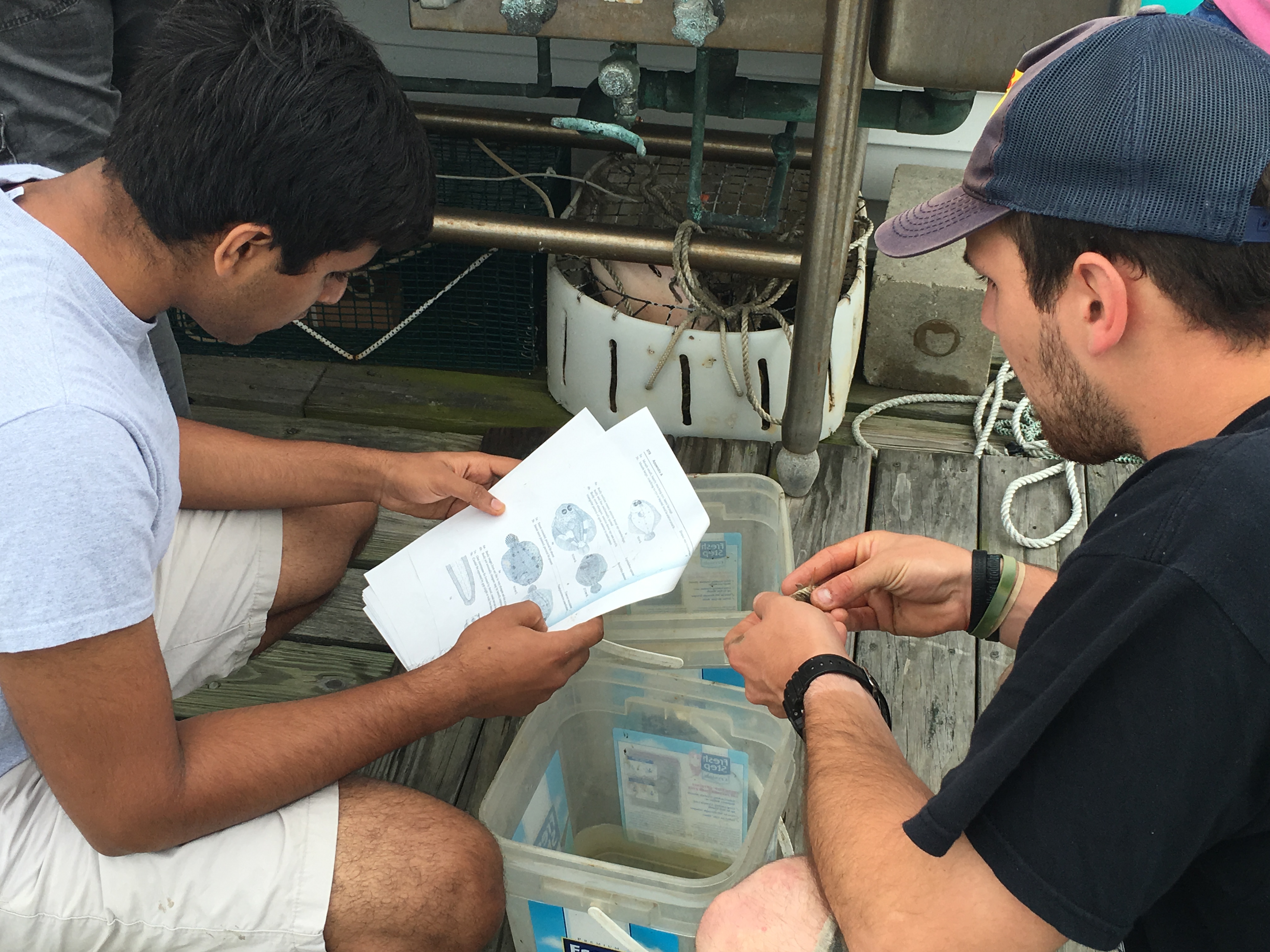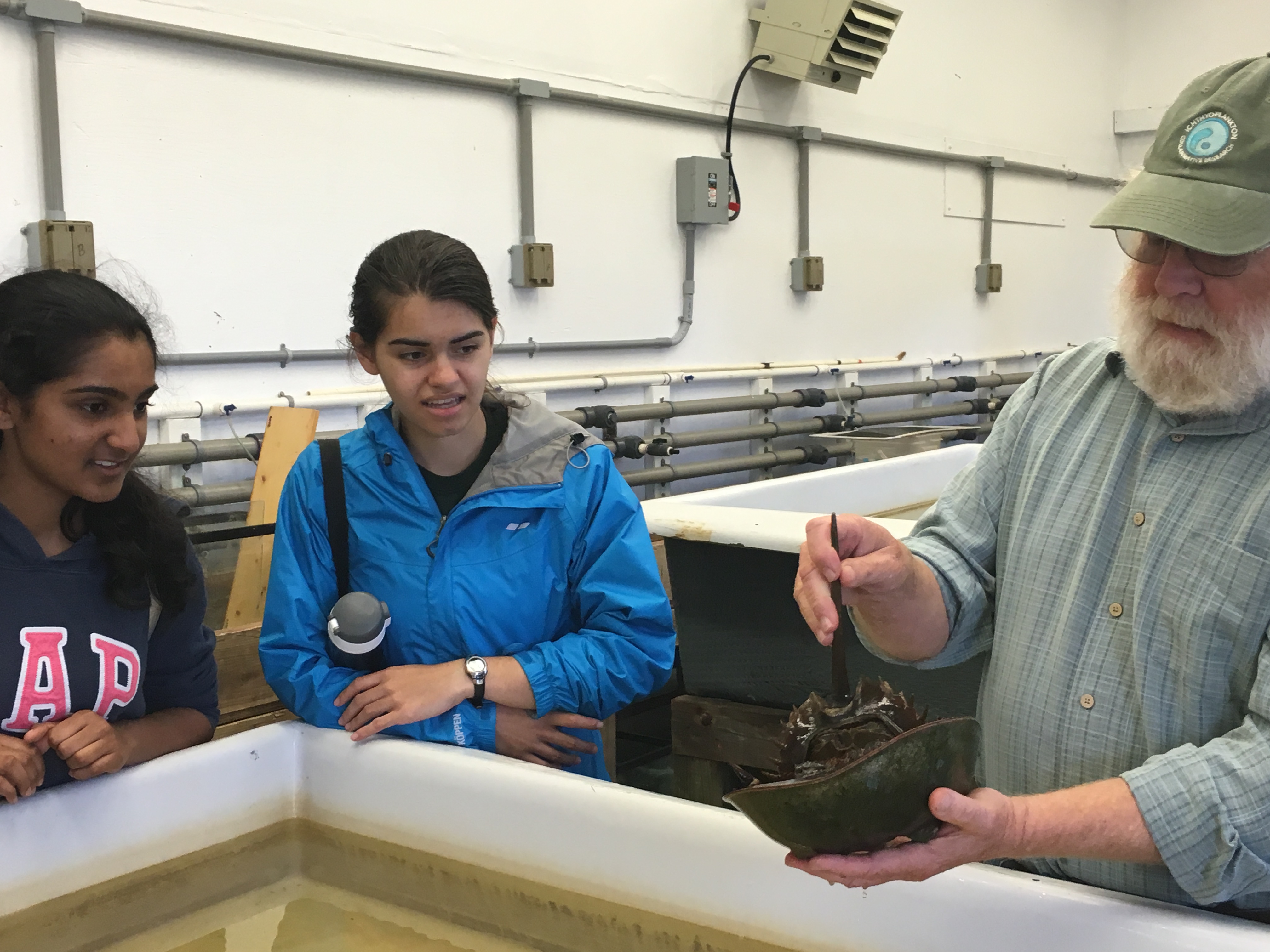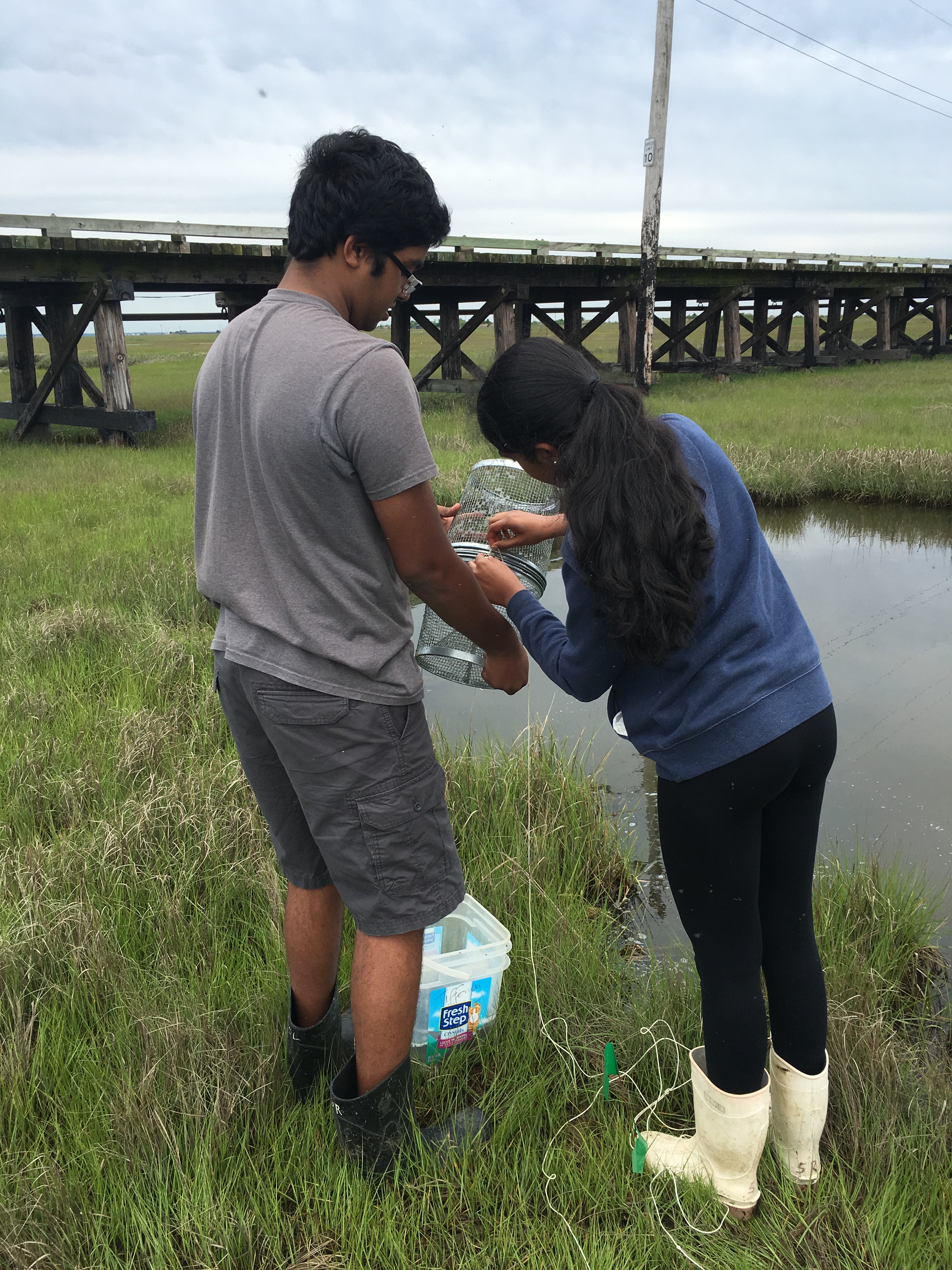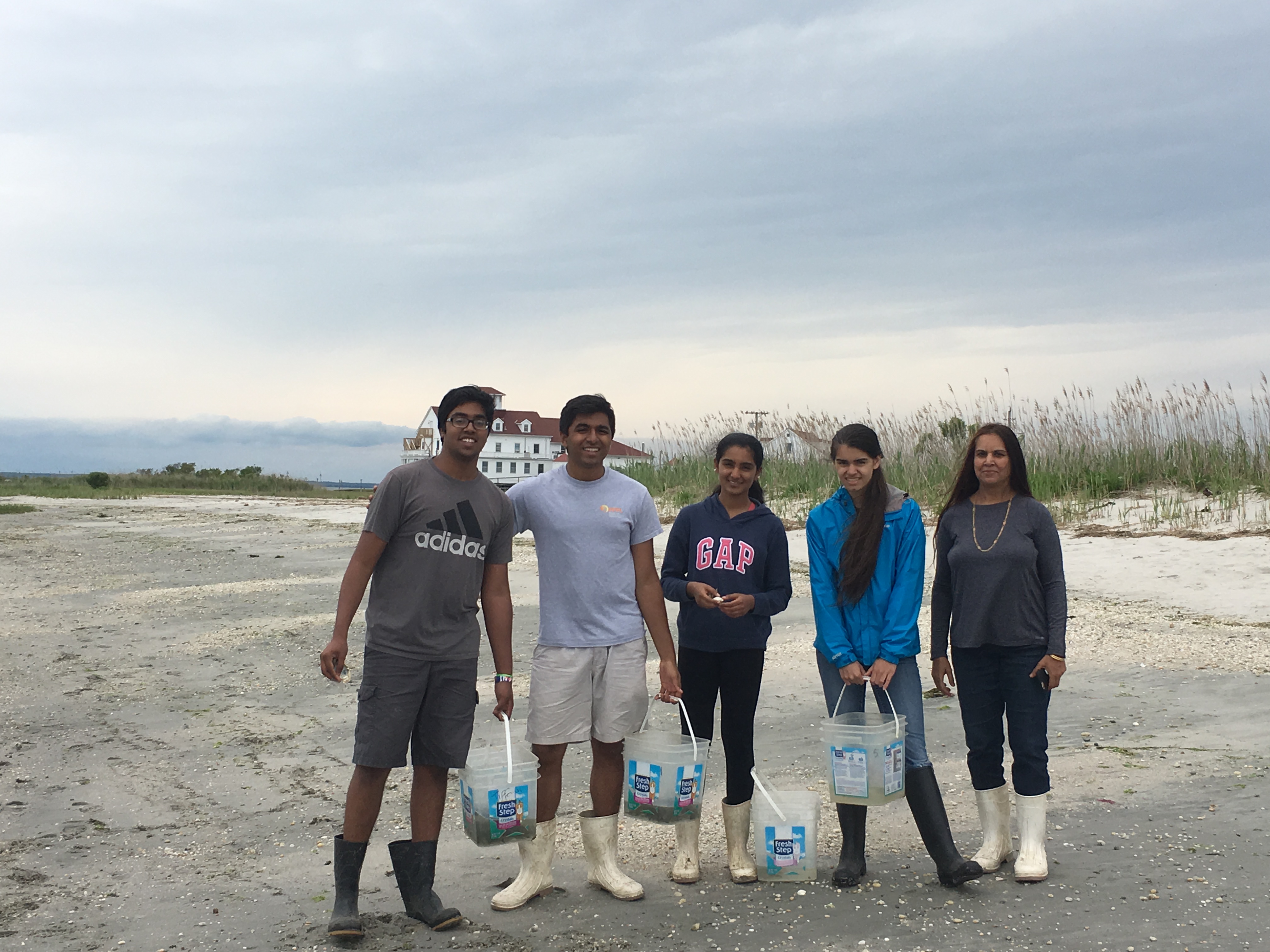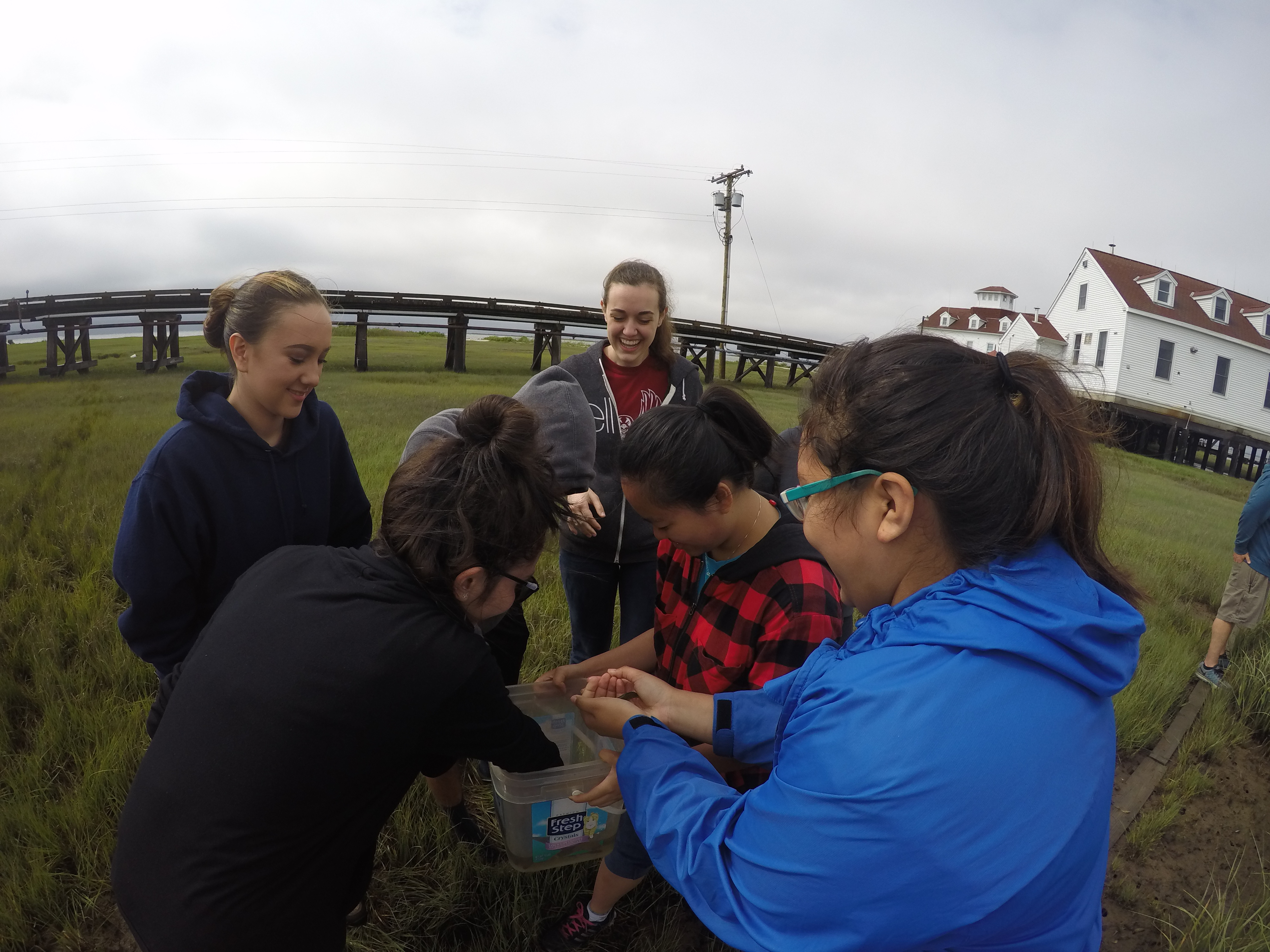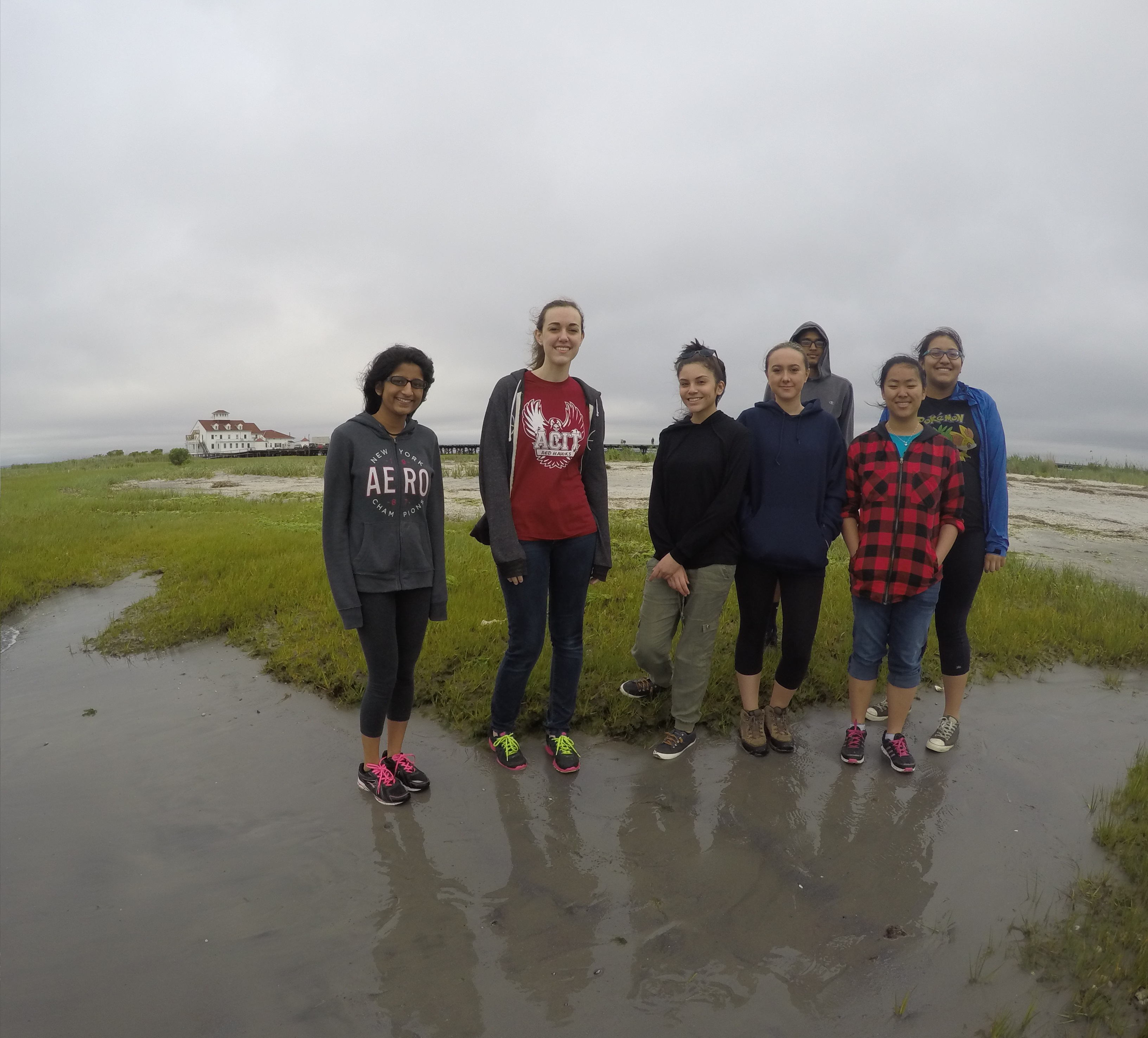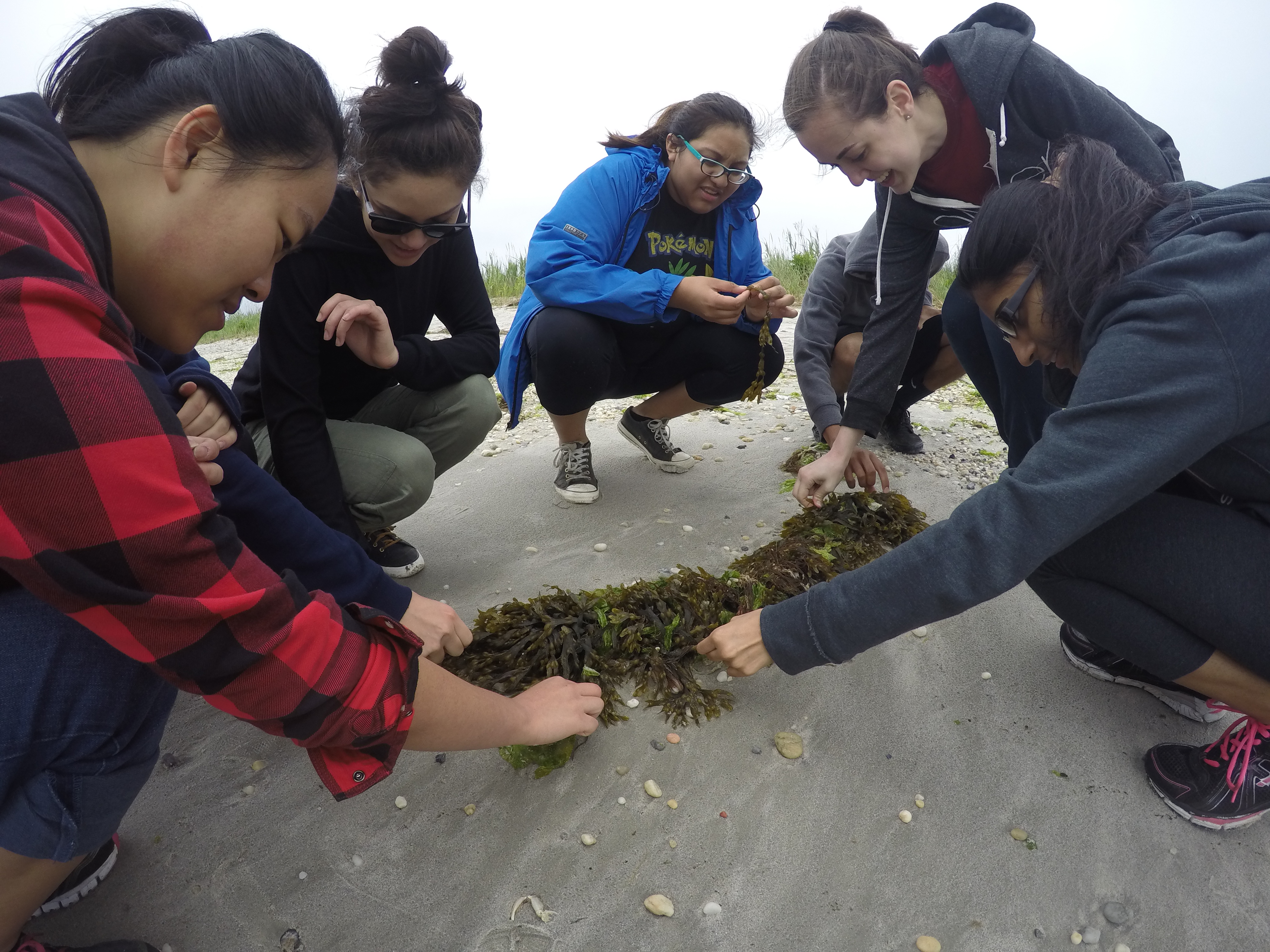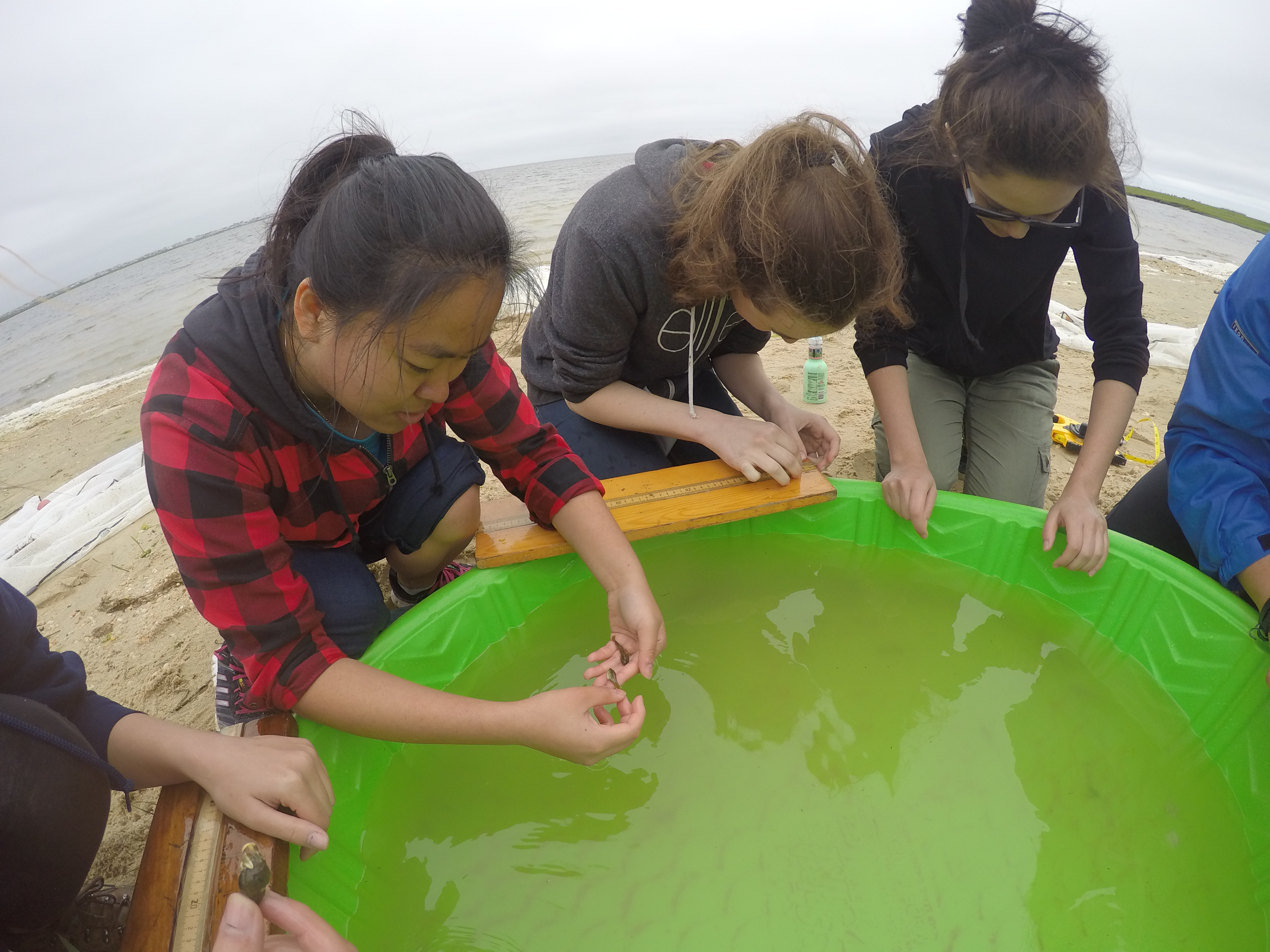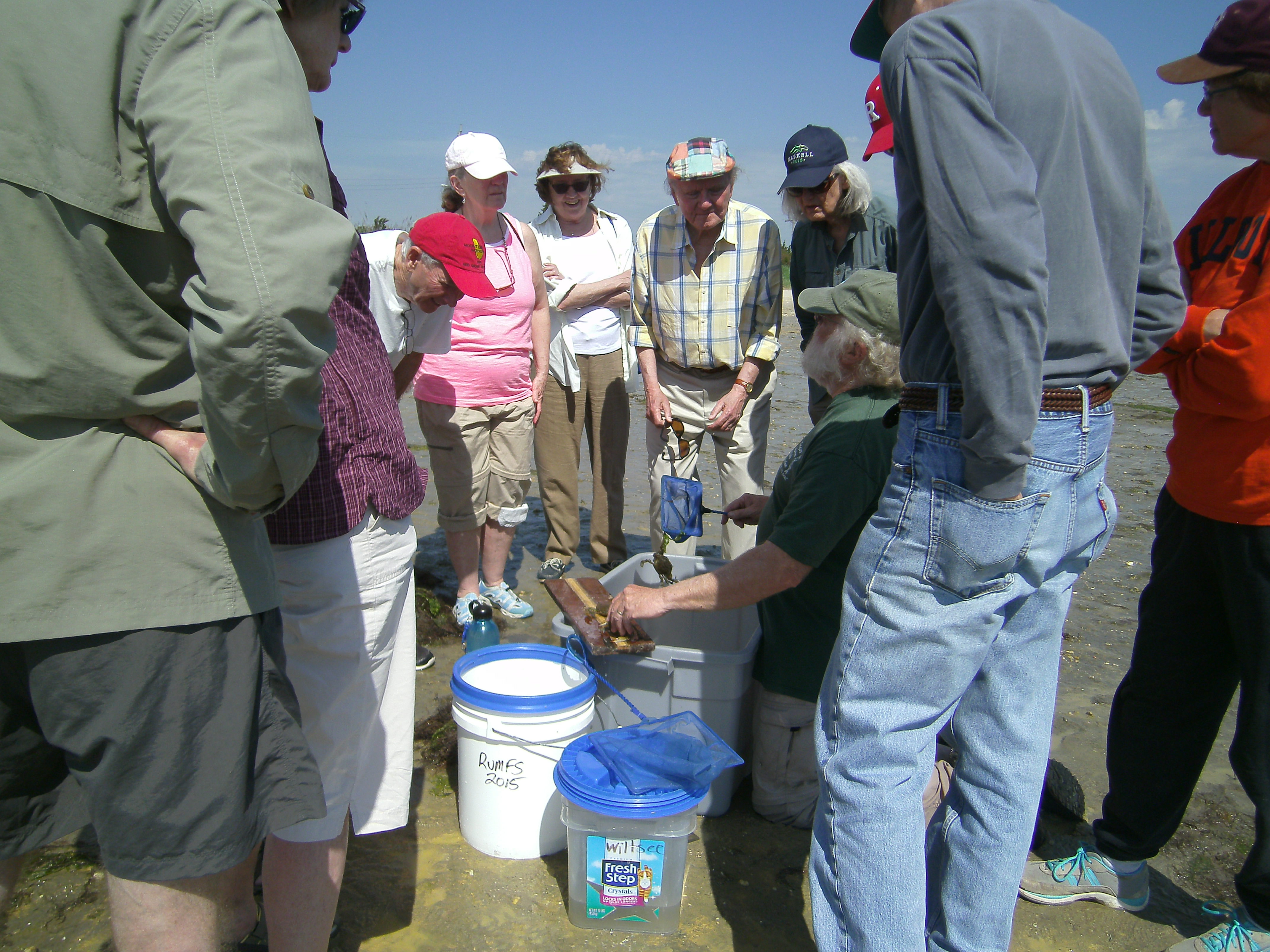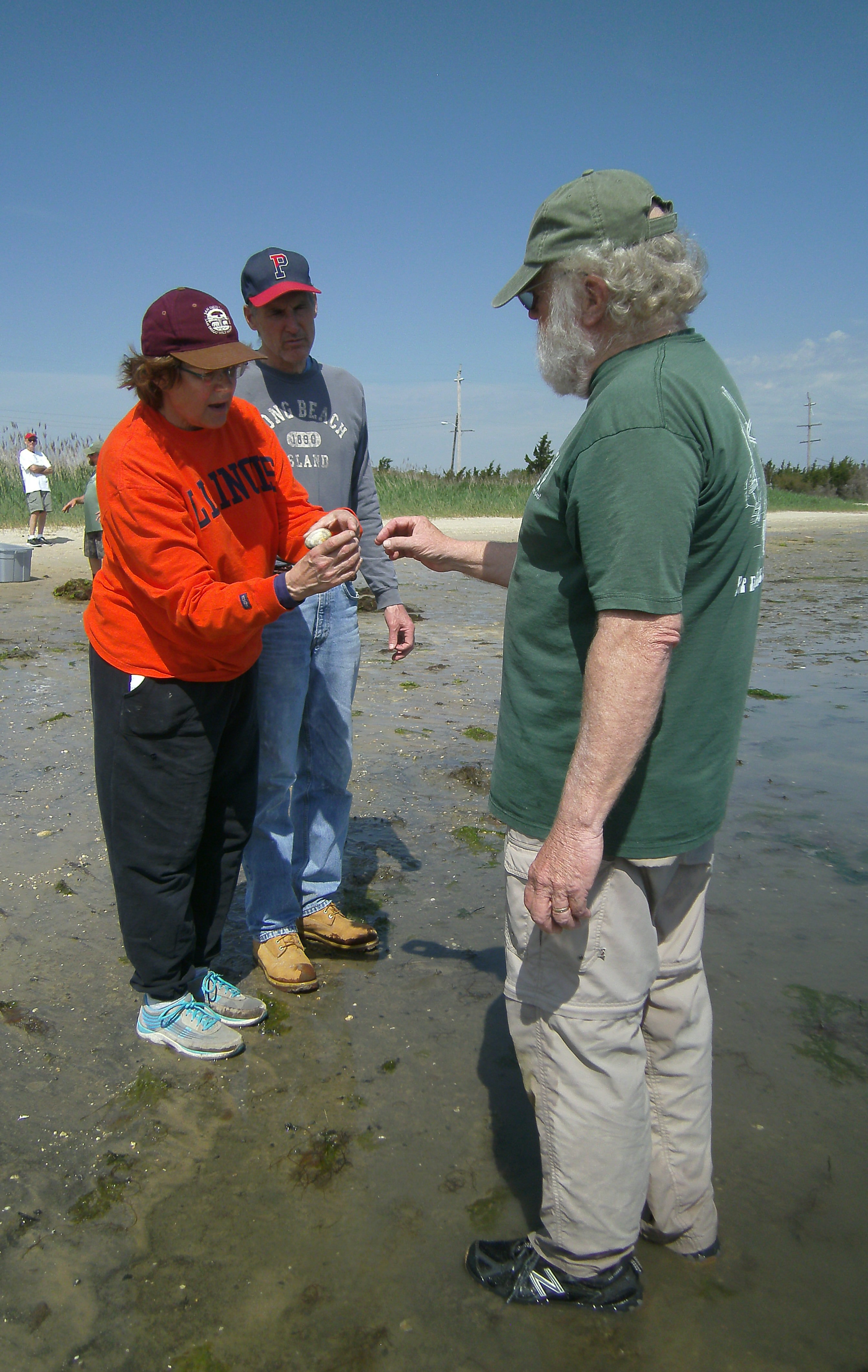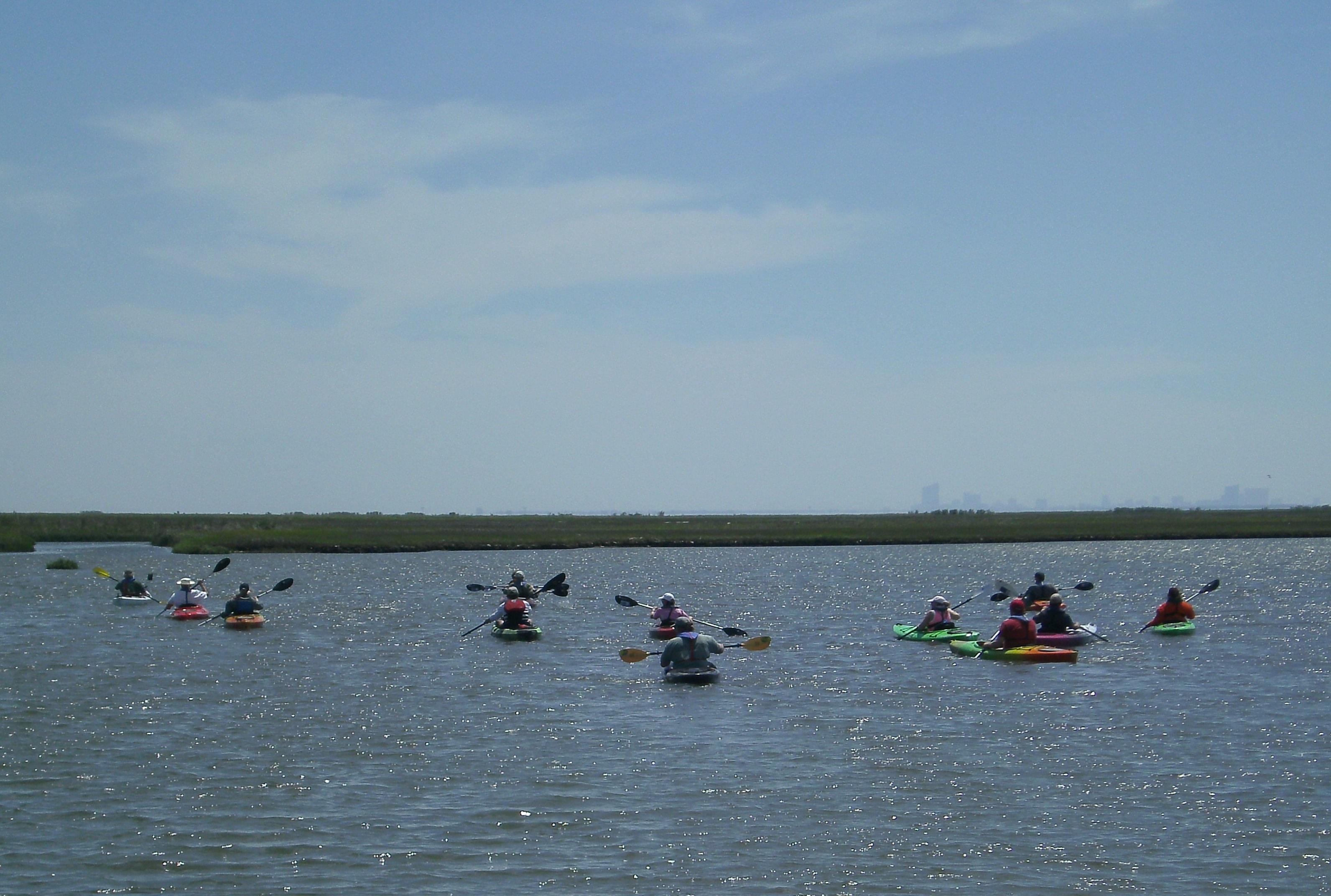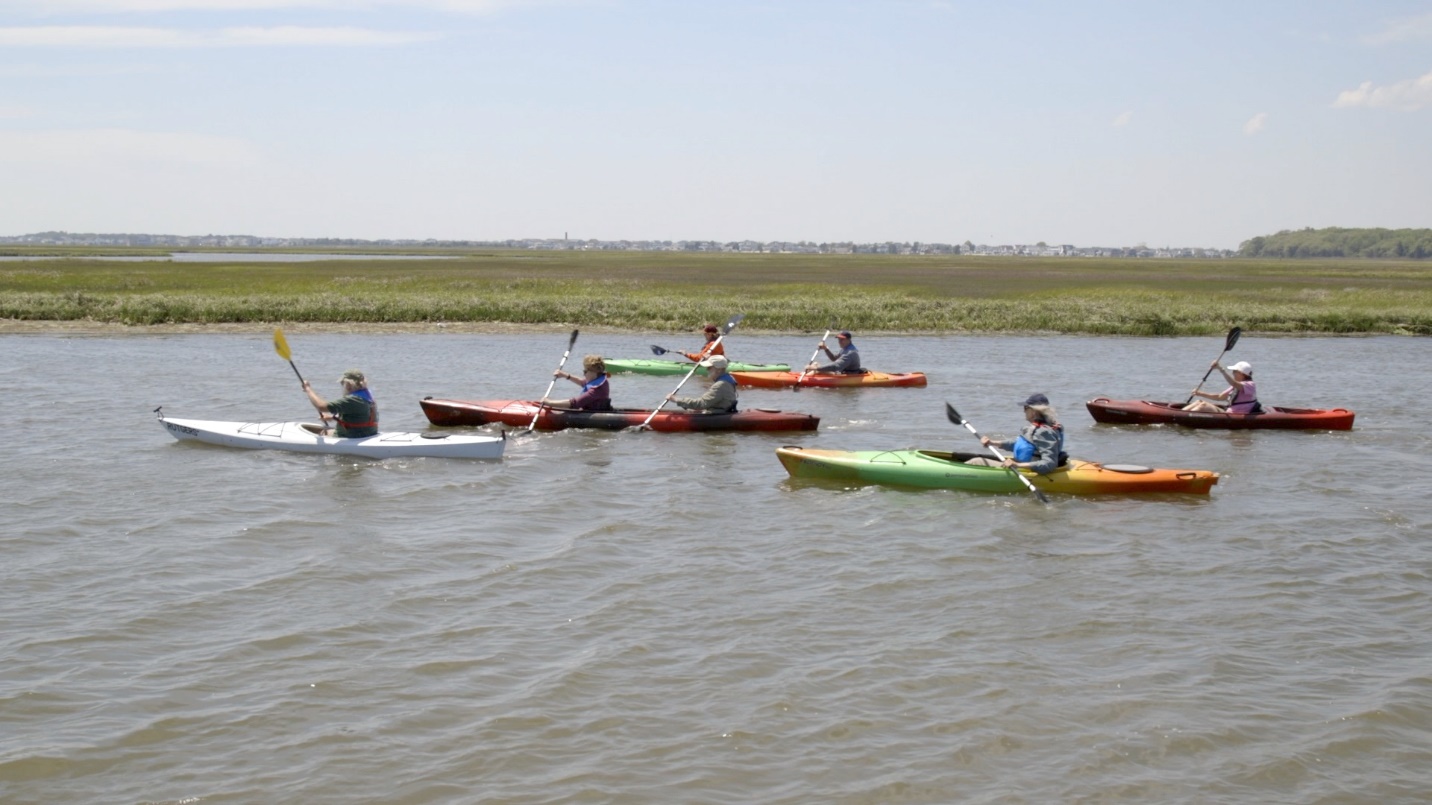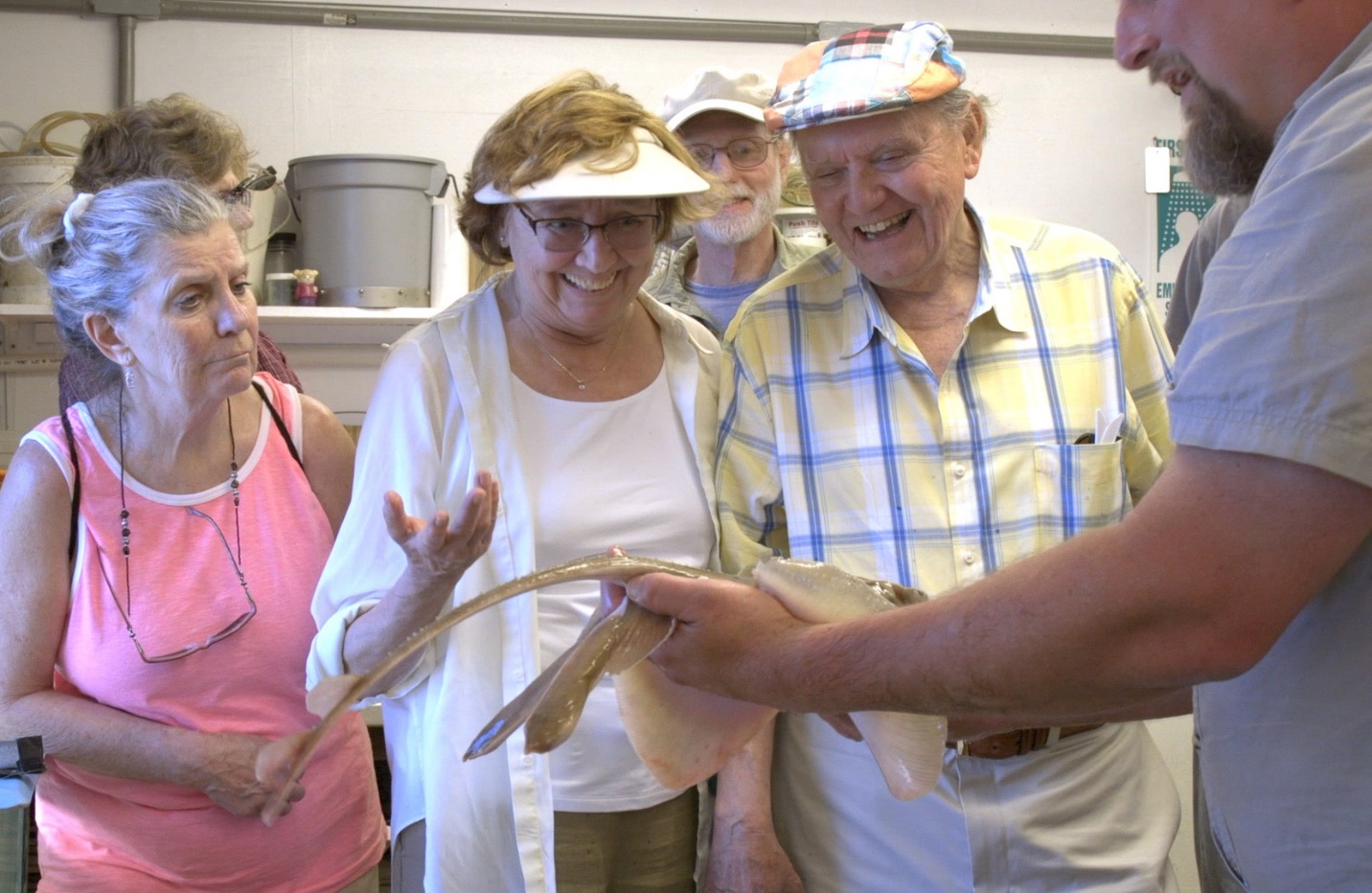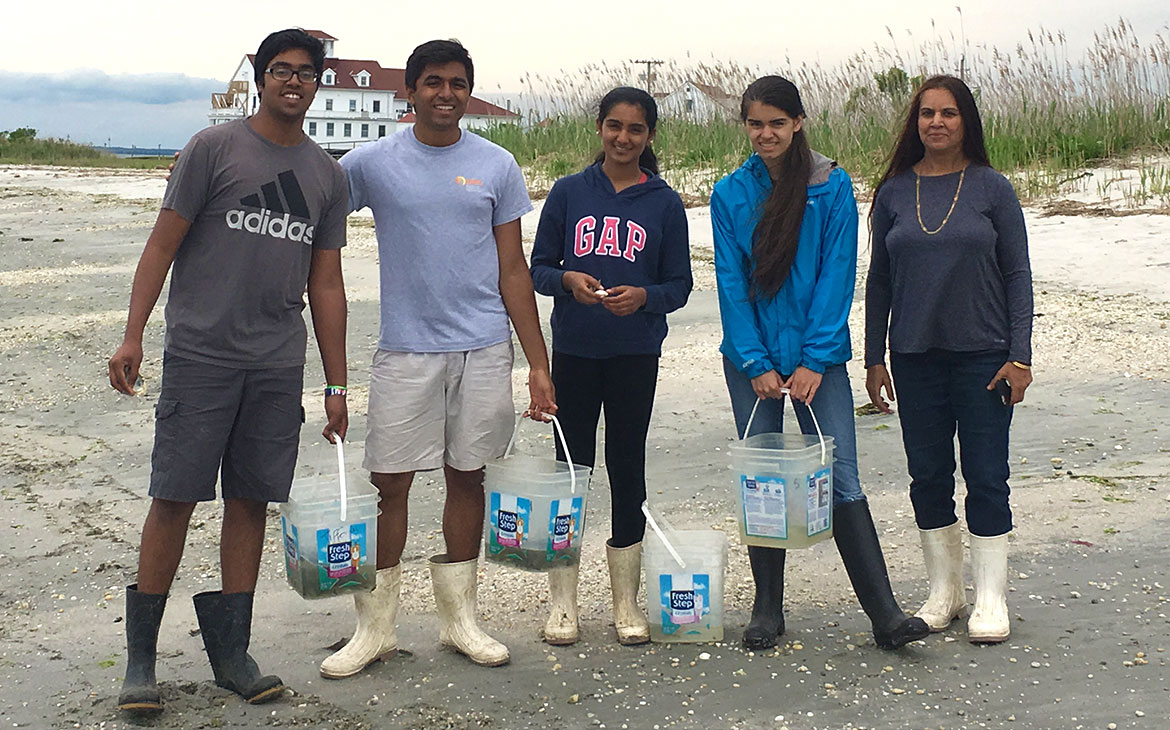Recently, the Rutgers University Marine Field Station (RUMFS) in Tuckerton, NJ has connected with the public giving them hands-on experience with research, the opportunity to interact with scientists, and teaching them about the estuarine environment.
A continuing education course sponsored through the Osher Lifelong Learning Institute (OLLI) at Rutgers drew participants from throughout New Jersey and even a few from Pennsylvania! This program engaged adults in hands-on activities such as seining and kayaking, and informed them of the history of the field station and surrounding environment.
Next to visit the field station was the winning team of the Shore Bowl. These students drove all the way from West Windsor, New Jersey to explore the Mullica River – Great Bay Estuary. The students participated in long term sampling of minnow traps in the RUMFS boat basin, an explorative marsh walk, and seine sampling at the end of Great Bay Boulevard.
Lastly, in early June thirty five Advanced Placement Biology students from the Atlantic County Institute of Technology visited RUMFS. During their time at the station they applied concepts learned in class to help explain observations they made throughout the day. Through hands on experience with a long term seining program, students identified various fishes and crabs, recorded data on these individuals, and gained a much greater appreciation and understanding of the work research scientists undertake as evidenced by the student quotes below:
“Thank you for showing us how real research works. A lot of people talk about research and I picture a sterile lab and scientists in white lab coats and goggles but that’s not all research is. My time at the station helped me realize that I would love to be a part of research during my own experience in school. Thank you for taking the time to show us what you do!”
“Thank you all for helping us out on our trip. I had no idea how much work and effort goes into biology research and have a renewed respect for your occupations. On top of that, thank you for taking your time to help us all learn about the local marine life and giving us a sneak peek on the research process. We are all grateful for your time and effort.”
